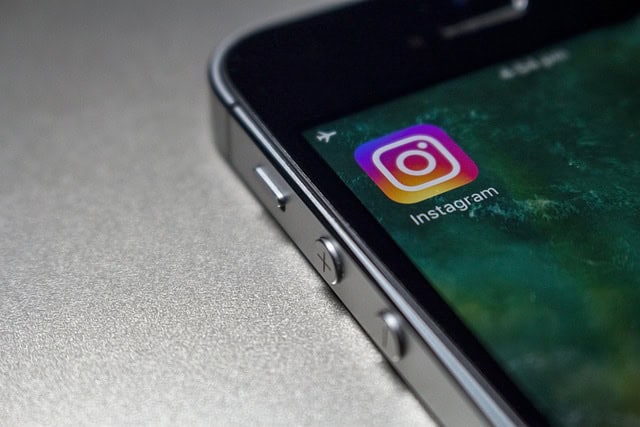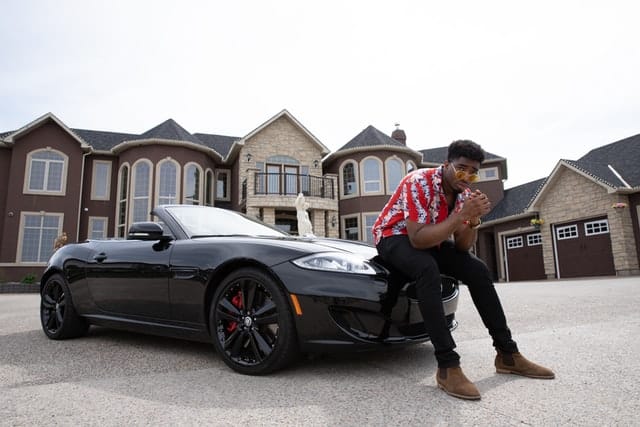How Much Do You Need To Live Comfortably And Why
The answer to this is just as easy as the answer to ‘How long is a piece of string?’ It can vary wildly from person to person. For me, I live on about $520 a month and I live quite comfortably.
I need to point out though, that I live in Asia so naturally, my expenditure is going to be much lower so this is where the answer to this question is ‘subjective’, that is, it can and does vary from person to person.
So how much money do you need to live comfortably and how can you work out how much? The answer is easy. You need to look at all the things you spend money on and break them down into groups and use the minimum viable product rationale.
The minimum viable product is the cheapest possible option you can spend your money on before your comfort level begins to suffer.
If you spend anything less than this you will being to see negative side effects which will cause your level of comfort to drop and allow stresses or other negative effects to creep into your life.
Let’s look at the main things you are likely to spend your money on and how you can use your reasoning to choose the best option for yourself.
Accommodation
Having somewhere you call home is important, as is feeling comfortable there but think about what you actually need from your accommodation to see if it is the right place for you.
For example, do you have extra rooms you don’t use? If you do then what do you use that space for?
Many of us use extra rooms as storage/junk rooms so it’s pretty often wasted space. Maybe you have a room ‘in case people stay over’. If this is the case how many times per year do you have guests? If it is less than ten times per year then you don’t need it. It’s just vanity on your part keeping a rarely unused room in your house.
If you have an extra room either use it or lose it. Downsizing will not cause any discomfort as you are only losing something you don’t use. If the room is full of stuff you never use then get rid of that too, you don’t need it to be comfortable.
Bedrooms don’t need to be the size of football fields either. In reality, you only ‘need’ a room that can house a bed and wardrobe and a drawer unit. Apart from sleeping and storing some clothes you never need to go in there so why waste space and money?
Think about the other rooms too. If you have a dining room, a living room, and a den as well as a large kitchen with a breakfast table then do you really ‘need’ all this space? A smaller house will be cheaper and easier to clean and maintain. Leaving more of your money in your pocket for other comforts.
The extra comfort gained from having a house 15% bigger than you need is negligible but the extra cost is not.
Transport
Having a reliable, safe car that is comfortable and can get you from A to B is the minimum you need here so think about the car you drive now.
If you have an expensive new car with all the extras think about how much extra this is taking from your life. A car is a depreciating asset. You lose money every day with a car. How much depends on you.
Think about downsizing your car too. Get one that is more economical to run and insure, get a car with a smaller engine. If you need a car to accelerate from 0 to 60 in 3 seconds then you must be in quite a hurry. Get a cheaper car and leave 5 minutes earlier.
Think about what you need rather than what you can impress people with, at the end of the day decent people will judge you on you and not your car.
If you are single or a couple without children then a small sedan will be more than ok. If you have a bigger family then a large sedan or SUV may be better.
Food
Food can be another huge factor in living comfortably. Nobody likes to eat cheap rubbish food so if you can afford it then eat the best food you can.
That said don’t go crazy and buy outlandish overpriced foods just to show people that you have high-end gourmet tastebuds. If you feel the need to drink Kopi Luwak coffee for example because it’s upwards of $50 a cup and most people can’t afford it then ask yourself why is this important to drink this and not a coffee from Starbucks? (As a side note, today Kopi Luwak coffee is mostly produced by force-feeding caged Civit cats the beans as they don’t have a huge appetite)
Have a look at the food you buy and try not to buy just the high-end range, you may be surprised to find that many of the budget brands are identical so you are just pouring money down the toilet.
Think about things like flour and sugar, the budget brands don’t have flour mills or sugar processing plants so they go to the big producers and buy bulk at a heavy discount and sell it packaged in the cheaper branded packaging.
Try growing your own veggies if you have space, it’s cathartic, rewarding, and money-saving too.
Essential bills
Essential bills include gas, water, and electricity. Some people would argue that your telephone and internet are also essential too, they are but to a lesser degree so I have classed them as nonessential bills for the purposes of this article.
If you have to pay for the usage of water, gas, and electricity per unit or a ‘metered’ connection then you can be smart with these utilities to minimize the impact on your wallet, you don’t need to stop using them but you can trim down the waste without sacrificing your comfort.
For example, don’t leave the heating or aircon going when you leave the house. Sure it’s nice to come back to a nice cool or pleasingly warm house but it’s costing you a lot of money to do that and a bit crazy if you are not even in the house. Turning off lights when you leave the room can also save you lots of money.
When you are showering limit your showers to 15 minutes instead of your usual 30 or 45 and don’t leave the water running while you are brushing your teeth. You will be surprised at how doing these 2 things can lower your water bill drastically.
With a bit of forward-thinking, you can be careful with these bills without sacrificing any of your comfort levels and you will find yourself sacrificing less of your hard-earned cash too.
Possessions
Owning too many things can actually hamper your comfort interestingly enough. If you think about how many things you actually own can you really live without them and still be comfortable? Of course you can.
Having fewer things is mentally liberating, I have about 12kg worth of possessions, which can fit into a backpack and a motorbike. My level of comfort has not suffered as a result of getting rid of all my things. If anything my level of comfort has gone up as it’s so easy and comfortable to move around now without any problems.
Take a few moments to think about the things you may have a spare room, basement, or attic, things that you have had for many years that you never use and will likely never ever use in your life. Why have them? they are just things and are not important.
You may have some things that are of sentimental value but draw a line in the sand somewhere. The first socks worn by a child is one thing but keeping 5 or 6 huge bags of clothes in the attic in case a member of the family’s children or great-grandchildren ‘may’ have kids is not a good reason to hoard.
If you have more than 20 complete outfits including shoes then you need to stop buying clothes too. Get yourself enough clothes for 3 full weeks and then stop. Anything more than this is excess, you don’t need more than this, you have just 1 body and 2 feet.
Think also about the other things in your house that you never use, do you have a kitchen full of gadgets and spare utensils for every occasion? Do you have drawers and drawers of unplayed games, trinkets, and decorations? Get rid of them and the drawers too if you can to stop you from filling them up again.
Non essential bills
Bills that sit here include cell phone bills, cable, and any other subscription type service, like Netflix or magazines.
When we think of things that make us happy (feeling comfortable) then many of the items that would fall into this category will apply. But ask yourself do they really contribute to your comfort level and if so how?
If you have a huge mobile plan, broadband internet in your home, cable TV with over 50 channels, and Netflix, are you really going to feel like your life is full of suffering if you lost or downgraded one of these?
Chances are you may not use all of these and what you do have you don’t use effectively so you are essentially wasting money rather than creating a comfortable surrounding.
Look at your minimum viable product rationale. First, ask yourself if you need them all, if not which ones can you drop. After you have done that think about which ones you can downgrade before you begin to experience a loss of enjoyment (comfort) from it. Then you will get an idea of how much you need to spend to maintain your comfort level.
Travel
Travel for many is essential. For many years it wasn’t for me but now it is once more. I have traveled to 20 countries and many cities but I still feel like I have only scratched the surface.
Being comfortable while traveling doe not necessarily mean traveling everywhere in business or first class. It does, however, mean that you are not scrimping on your accommodation, food, or excursions.
Going somewhere new and fun is much less fun if you cannot afford to buy anything, see anything or do anything. As a rule, I would say aim for the lower end middle price band for accommodation to be comfortable and plan your day trips on an every 1 to 2 days basis if you are going for a week, every 2 to 3 days if you are going for 2 weeks and every 3 to 4 days if you are going for a month or longer.
Avoid 5-star restaurants when traveling too, they will add significantly to your budget but will not add that big a difference to your comfort level.
Flying can be comfortable if you opt for a premium plus type option. You can get slightly better meals and seating than if you went pure economy and it will cost far less than business or first class.
Other Hobbies
Hobbies can come in a million different flavors from walking, which can cost next to nothing to horse riding which can run into hundreds (thousands if you have your own horse).
While hobbies are a great way to relax (feel comfort in life) they are not essential and may not contribute that much to your life if you only partake in them a few times a month.
Try to scale the cost of your hobby accordingly. If you are a collector this can be tricky but if you then become a trader (buying and selling) then it can be just as much fun and you will need to spend less and may even make some money from it.
Time is also another factor as well as cost for hobbies. Hobbies have a time cost too. Some are low like collecting but others can take up a lot of time, like jigsaw puzzles, knitting, and video games.
If you want to take up a new hobby to give yourself a little extra quality of life then think about the time aspect as well as the financial. If you cannot get right into your hobby as it requires a minimum of 30 hours a week to do then steer clear and pick something a bit more reasonable.
Sundries
In this category, I have placed things like cosmetics, clothing, shoes, and jewelry. These are far from essential in bulk to make us comfortable. After all, we have just 1 body and 2 feet.
Before I went traveling and got rid of all (95%) of my possessions I had many clothes and 17 pairs of boots/shoes etc. Some of them I hadn’t even worn apart from trying them on in the shop. Did they add to my comfort? Hell no! Even now I have 3 pairs and really only just use 1 so I can probably cut down even further.
If you do feel these items are essential for your comfort and well being then by all means buy them but try to be a little pragmatic in your approach.
Clothes: Get what you need and then stop. If you have more than 3 weeks’ worth of complete outfits then you don’t need more. Go into maintenance mode. Buy something only when you wear something out and need to replace it.
Shoes: Many people love shoes but you can only wear 1 pair at a time. If you look at your shoe collection and you see you have more than 10 pairs, check your wearing habit. Do you wear, like I do, a favorite pair and only rarely use the rest? If so then you don’t need 10 pairs, trim down to 5 or 6 pairs.
Cosmetics and perfume: These products can be very expensive and can run into the thousands if you are not careful. You may try and convince yourself you cannot do without them or your skin can only tolerate the most expensive brands.
This may be true in a handful of cases but it’s not always true for most of us. Try using mid-range or cheaper brands, you may be surprised. Note: Cosmetic companies have to follow strict manufacturing processes so remember most cosmetics are of good quality.
Jewelry: This is one to be avoided where you can, at least from the point of view about precious stones. They are dug up from the ground, often in war-torn countries using force and/or slave labor and they are stockpiled to keep the price artificially high.
You can find beautiful pieces of jewelry made from inexpensive materials that will be just as eye-catching so if you really need to accessorize then do it will things that are realistically priced.
Final Thoughts
Living comfortably does not take a minimum spend and certainly cannot be quantified that easily. Whenever you want to do something to make your life easier or more comfortable, think about the MVP (minimum viable product). You may find you don’t need the top end, bells and whistles version after all. In fact you may not need it at all.






